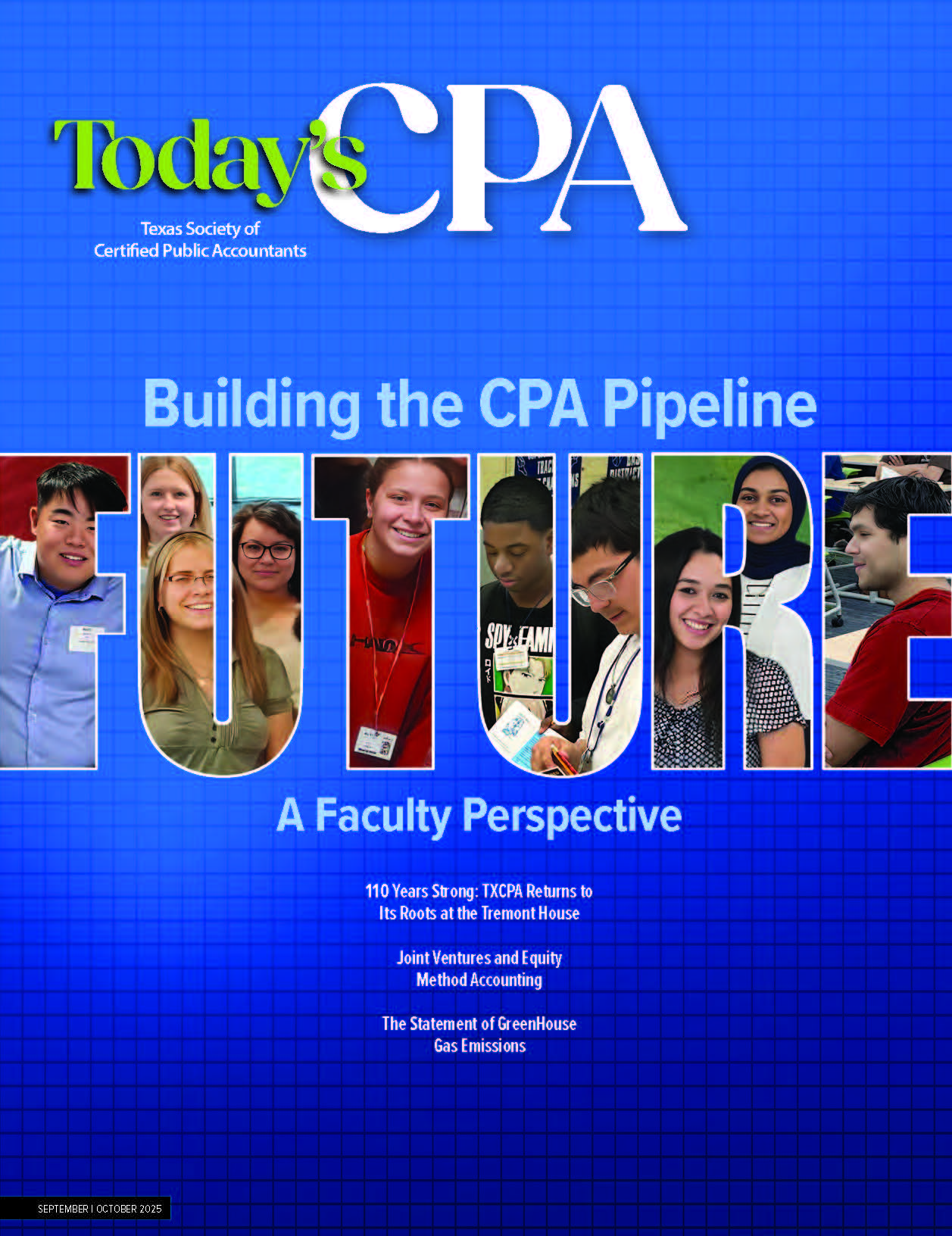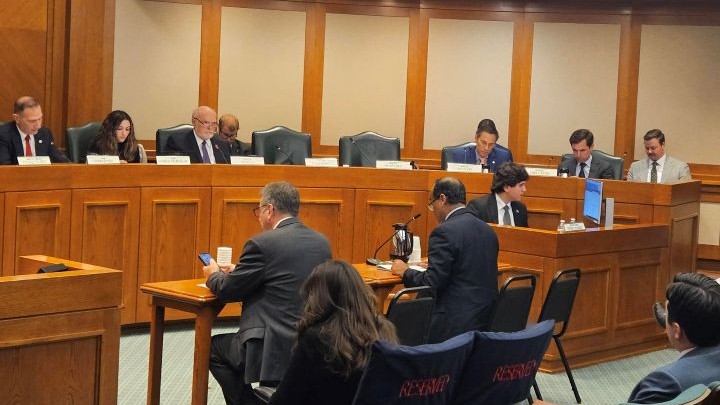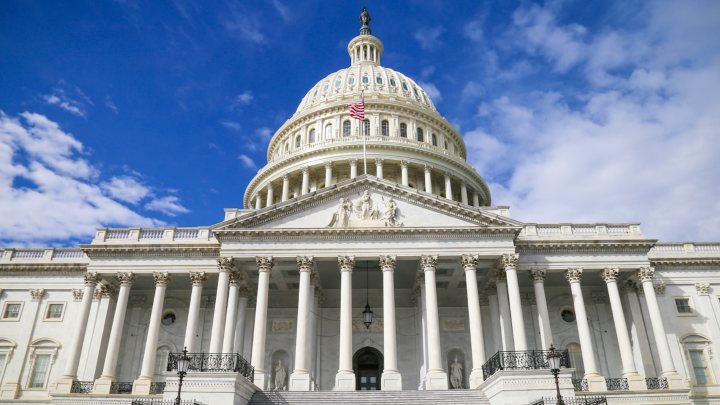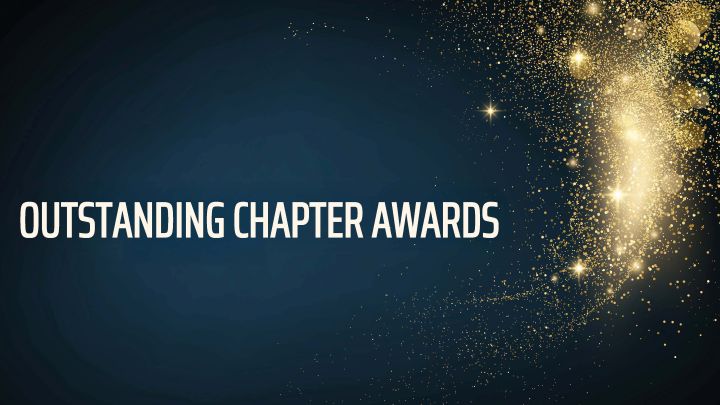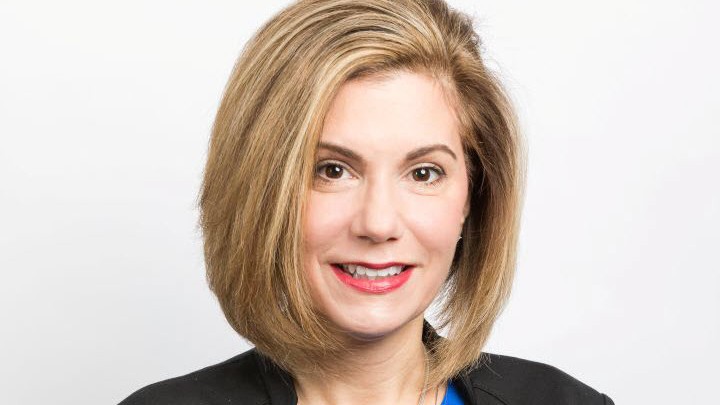Saved by the Byrd Rule: PCAOB Survives the One Big, Beautiful Bill
By Tonya J. Blocker
Republican Congressman Bill Huizenga (MI-02) introduced H.R. 8228, the Streamlining Public Company Accounting Oversight Act, to the House of Representatives on May 2, 2024. The bill’s primary objective is to dismantle the Public Company Accounting Oversight Board (PCAOB) and create a new office within the Securities and Exchange Commission (SEC), called the Office of Public Accounting Oversight (OPAO).
The OPAO would assume the PCAOB’s responsibilities and perform its functions. The legislation specifies that the transfer must take place within one year of the bill’s enactment (United States Congress, House).
On April 30, 2025, the House Financial Services Committee approved Title V of its reconciliation recommendations, which included Congressman Huizenga’s provision to eliminate PCAOB and transfer its responsibilities to the SEC (Congressional Budget Office). The provision was incorporated into the broader reconciliation package, the One Big, Beautiful Bill Act (OBBBA) (H.R. 1), which passed in the House of Representatives on May 22, 2025, by a 215–214 vote (Committee for Responsible Federal Budget).
However, on June 19, 2025, the Senate Parliamentarian determined that the PCAOB provision violated the Byrd Rule, resulting in its removal from the OBBBA during Senate proceedings (Flook). As a result, immediate efforts to dismantle PCAOB were halted, but its long-term future remains uncertain.
The Byrd Rule Explained
Before addressing the uncertainty surrounding PCAOB’s future, it’s important to first provide a brief overview of the Byrd Rule and explain how it applied to the parliamentarian’s decision regarding the PCAOB provision. According to the Congressional Research Service, the Byrd Rule was originally introduced by Senator Robert C. Byrd in 1985 and permanently incorporated into the Congressional Budget Act of 1974 in 1990.
The rule allows senators to raise a point of order to strike items from a budget reconciliation bill if those items are deemed “extraneous,” meaning they do not have a direct impact on federal spending or revenues. When a point of order is raised, the Senate Parliamentarian advises the presiding officer (the Senate Chair) on whether the matter in question meets the Byrd Rule criteria.
If the Chair sustains the point of order, the provision is removed from the bill unless three-fifths of the Senate (60 senators) vote to waive the Byrd Rule, a threshold that is rarely met. Overcoming a Byrd Rule objection is significantly more difficult than passing a provision with a simple majority of 51 votes (Congressional Research Service).
Fiscal Complexities
The PCAOB provision was raised as a Byrd Rule violation because it does not clearly reduce the federal deficit, a key requirement for inclusion in reconciliation legislation. According to a Congressional Budget Office (CBO) report issued on May 7, 2025, eliminating PCAOB and transferring its functions to the SEC would reduce federal spending by approximately $3.2 billion between 2025 and 2034. However, it would also reduce offsetting collections by $3.3 billion, since the SEC would be prohibited from collecting the accounting support fees currently authorized under Section 109 of the Sarbanes-Oxley Act (United States Code, Title 15, §7219).
The net effect of the proposal is an estimated $100 million increase in the federal deficit over the 10-year budget window (CBO). Because the provision would add to the deficit rather than reduce it, the Senate Parliamentarian determined it was “extraneous” under the Byrd Rule and therefore ineligible for inclusion in the reconciliation bill.
Although the initial CBO estimate projected that eliminating PCAOB would result in a $100 million deficit increase, the fiscal impact was more complex than this figure suggested (CBO). The CBO noted that reducing accounting support fees could increase taxable income for corporations and auditors that currently deduct these fees as business expenses. As the CBO explained, “reducing such [accounting support] fees tends to increase taxable income for workers and businesses, leading to increased collections of income and payroll taxes.”
Over the 2027–2034 period, the CBO estimated this additional tax revenue would offset about 25 percent of the gross fee reduction each year. Based on this adjusted calculation, eliminating PCAOB would have resulted in $3.2 billion in reduced spending and $2.4 billion in reduced revenues, producing a net deficit reduction of approximately $800 million (CBO). The provision ultimately failed under the Byrd Rule because the anticipated tax offset was neither certain nor directly tied to deficit reduction.
Adding to the provision’s problems, the reconciliation recommendations did not include estimates for the SEC’s costs in assuming PCAOB’s responsibilities, leaving the long-term fiscal implications unclear. See Table 1 for a comparison of the average cost per employee at the PCAOB and SEC.
In 2023, the average cost per PCAOB employee was $268,542, which was $12,802 less than the average cost per SEC employee of $281,344. Over the period from 2023 to 2025, SEC employee costs were consistently higher, averaging about $4,000 more per employee each year. Thus, unless the transfer involves significant workforce downsizing, personnel costs are unlikely to yield substantial savings.
According to the wording of H.R. 8228, the bill underlying the failed legislation, the five board members of PCAOB would have been replaced by the Chief Accountant of the SEC. The five board members currently leading PCAOB earn a collective annual salary of $3.4 million (Thomson Reuters). The Chief Accountant may earn a maximum of $311,235 according to the compensation overview provided by the SEC for 2024 (United States, Securities and Exchange Commission, Compensation Overview).
As a result, over the 10 years under consideration, the downsizing in leadership is projected to result in a decrease in the federal deficit of approximately $31 million (See Table 2). Therefore, while not entirely clear currently, the cuts to spending appear to come from downsizing PCAOB’s current workforce. Notably, the legislation states that PCAOB employees may be offered equivalent positions within the SEC. Still, no such offer is guaranteed (United States, Congress, House, Committee on Financial Services, Sec. 50002).
Opponents of dismantling PCAOB through budget reconciliation argued that because the PCAOB was created by the Sarbanes-Oxley Act of 2002 (SOX), which passed through regular order, its dissolution should follow the same process (Ho). Section 109 of SOX, codified at 15 U.S.C. § 7211, explicitly established PCAOB as an independent, nonprofit corporation, not a government agency.
The statute also clarifies that PCAOB employees are not government employees. In contrast, the proposed legislation would terminate PCAOB and replace it with the Office of Public Accounting Oversight (OPAO), a new office within the SEC. This change would move audit oversight responsibilities from an independent nonprofit to the federal government (United States Code, Title 15, § 7211; United States Congress, House). Clearly, the underlying intent of the provision was to transfer audit oversight, not to address budgetary concerns, a distinction at the heart of the Byrd Rule challenge.
Although PCAOB survived this round of legislative efforts, what happens next is less clear. The pattern of opposition suggests that this is a setback of the agenda to dismantle it, but not the end. As the title of Huizenga’s bill suggests, its objective is to “streamline” audit oversight. The push to eliminate PCAOB appears to be part of a longer-term effort and not merely a one-time budget tactic. The fact that the provision passed the House highlights the substantial support for dismantling PCAOB.
Investor Confidence at Stake
Critics warn of the negative consequences. They argue that eliminating an independent audit regulator could weaken oversight, reduce investor confidence and increase the risk of audit failures (CFA Institute; Schroeder; Tyson). In a letter to Congress, CFA Institute CEO Margaret Franklin and policy head Sandra Peters cautioned that dismantling PCAOB would effectively eliminate auditor oversight, since the SEC lacks the skills, funding, authority, and global agreements, particularly the inspection protocol with China, needed to assume PCAOB’s responsibilities (CFA Institute).
Former PCAOB Chair Erica Williams advised, “The unique experience and expertise built up by the PCAOB over decades cannot simply be cut and pasted without significant risk to investors at a time when markets are already volatile” (Schroeder).
Representative Maxine Waters (D-CA), ranking member of the House Financial Services Committee, also opposed the move, emphasizing that it would move audit oversight costs to taxpayers and burden the SEC with responsibilities beyond its current capacity (Tyson).
Reduced investor confidence is a significant concern because it directly affects the behavior of capital markets (Shiller). This raises an important question for legislators: do investors view the move to dismantle PCAOB as a step toward greater efficiency or as a threat to independent audit oversight?
Prior research shows that investors pay attention to PCAOB inspections and consider them meaningful signals of audit quality. Robertson and Houston found that inspection reports improve perceptions of audit credibility, while Offermanns and Peek documented that shareholders respond to PCAOB reports, with stock price reactions reaching nearly 30 percent of the magnitude of earnings announcements.
Further, a large body of research suggests that PCAOB inspections improved audit quality. Studies have shown that the inspections pushed low-quality audit firms out of the public company audit market, increased the issuance of going-concern opinions for distressed clients and reduced earnings management (DeFond and Lennox; Carcello et al.; Gramling et al.). These findings suggest that transferring audit oversight from PCAOB to the SEC is not a neutral move and could alter the signals investors currently rely on to assess audit quality, with potential implications for market confidence (Offermans and Peek).
A Temporary Reprieve or a Step Toward Change?
In summary, the provision to dismantle PCAOB was removed from the OBBBA because it failed to meet the Byrd Rule requirement of directly reducing the deficit. In the broader context, however, this may prove to be just a technical hurdle in an ongoing effort to transfer auditor oversight to the SEC.
On one hand, proponents claim the move will make audit oversight more efficient while reducing government spending. On the other hand, opponents warn it would severely weaken audit oversight in the United States, reduce regulatory protections for investors and fail to produce cost savings.
Regardless of the position taken, most acknowledge that the implications of such a change are complex. PCAOB survived this round of legislative efforts; however, changes are likely on the horizon due to SEC pressure on leadership and other political forces (Prentice).
About the Author: Tonya J. Blocker, Ph.D., CPA, is an accounting professor at Sam Houston State University. She may be contacted at tjb094@shsu.edu.

Works Cited
Carcello, Joseph V., et al. “Post-SOX Improvements in Audit Quality: Evidence from Audit Fees and Financial Reporting.” Contemporary Accounting Research, vol. 28, no. 2, Summer 2011, pp. 517–556.
CFA Institute. “Letter to Congress Opposing Elimination of PCAOB.” CFA Institute, 30 Apr. 2025, https://rpc.cfainstitute.org/policy/comment-letters/2025-2029/letter-to-congress-opposing-elimination-of-pcaob.
Committee for a Responsible Federal Budget. 2025 Reconciliation Tracker. 11 July 2025, https://www.crfb.org/blogs/2025-reconciliation-tracker.
Congressional Budget Office. Reconciliation Recommendations of the House Committee on Financial Services. 7 May 2025, www.cbo.gov/publication/61379.
Congressional Research Service. The Budget Reconciliation Process: The Senate’s “Byrd Rule.” Updated 28 Sept. 2022, https://crsreports.congress.gov/product/pdf/RL/98-703.
DeFond, Mark L., and Clive Lennox. “The Effect of SOX on Small Auditor Exits and Audit Quality.” Journal of Accounting and Economics, vol. 52, no. 1, 2011, pp. 21–40.
Flook, Bill. "PCAOB Elimination Plan Flies Into ‘Byrd Rule’ Wall in Senate." Accounting and Compliance Alert, June 20, 2025. Checkpoint News. https://www.checkpointnews.com/accounting-compliance-alert/pcaob-elimination-byrd-rule-2025.
Gramling, Audrey A., et al. “Audit Quality: Insights from the Academic Literature.” Auditing: A Journal of Practice & Theory, vol. 30, no. 1, 2011, pp. 1–17.
Grant Thornton Advisors. 2025. "Senate Republicans Prepare to Influence Tax and Spending Bill." Grant Thornton, June 3, 2025. https://www.grantthornton.com/insights/newsletters/tax/2025/hot-topics/jun-03/senate-republicans-prepare-to-nfluence-tax#:~:text=and%20spending%20bill-,Senate%20Republicans%20prepare%20to%20influence%20tax%20and%20spending%20bill,tax%20title%20of%20the%20legislation.
Ho, Soyoung. 2025. "Former Regulators, Academics Say Provision to Eliminate PCAOB Violates ‘Byrd Rule’." Checkpoint News, June 6, 2025. https://tax.thomsonreuters.com/news/former-regulators-academics-say-provision-to-eliminate-pcaob-violates-byrd-rule/#:~:text=Dozens%20of%20former%20regulators%20and,budget%20is%20almost%20$400%20million.
Huizenga, Bill. Huizenga Introduces Bill to Reform the PCAOB, Shrink Bureaucracy and Save Money. 5 Oct. 2021, https://huizenga.house.gov/news/documentsingle.aspx?DocumentID=401373.
Offermanns, Maarten, and Erik Peek. “Market Reactions to PCAOB Inspection Reports.” International Journal of Auditing, vol. 15, no. 3, 2011, pp. 307–326.
Public Company Accounting Oversight Board. 2025 Budget by Cost Category. 21 Nov. 2024, https://assets.pcaobus.org/pcaob-dev/docs/default-source/about/administration/documents/fiscal_year_budgets/1a-2025-budget---public-budget.pdf.
Prentice, Chris. “U.S. Audit Watchdog Chief Tells Staff She Has Been Asked to Resign.” Reuters, 15 July 2025, https://www.reuters.com/business/finance/us-audit-watchdog-chief-tells-staff-she-has-been-asked-resign-2025-07-15/.
Robertson, John C., and Richard W. Houston. “Investors’ Perceptions of PCAOB Inspection Reports on Audit Firms: The Case of Ernst & Young LLP.” Accounting Horizons, vol. 24, no. 1, 2010, pp. 1–20.
Schroeder, Pete, and Chris Prentice. "U.S. House Panel to Weigh Cuts in Consumer, Audit Oversight." Reuters, 30 Apr. 2025, https://www.reuters.com/sustainability/boards-policy-regulation/us-house-panel-weigh-cuts-consumer-audit-oversight-2025-04-30/.
Shiller, Robert J. "Measuring Bubble Expectations and Investor Confidence." Journal of Psychology and Financial Markets, vol. 1, no. 1, 2000, pp. 49–60. https://doi.org/10.1207/S15327760JPFM0101_05.
Thomson Reuters. "PCAOB Approves 2025 Budget." Thomson Reuters Tax & Accounting News, 21 Nov. 2024, https://tax.thomsonreuters.com/news/pcaob-approves-2025-budget/.
Tyson, Jim. "House Committee Votes to Scuttle PCAOB, Make SEC Auditor Watchdog." CFO Dive, 1 May 2025, https://www.cfodive.com/news/house-committee-votes-scuttle-pcaob-make-sec-auditor-watchdog-accounting/746943/.
United States Code. Title 15, Section 7211, Public Company Accounting Oversight Board. Office of the Law Revision Counsel, U.S. House of Representatives, https://www.law.cornell.edu/uscode/text/15/7211.
United States Code. Title 15, Section 7219, Accounting Support Fees. Cornell Law School Legal Information Institute, www.law.cornell.edu/uscode/text/15/7219.
United States, Congress, House. Streamlining Public Company Accounting Oversight Act. 118th Congress, 2nd session, H.R. 8228, introduced 2 May 2024. Congress.gov, www.congress.gov/bill/118th-congress/house-bill/8228/text.
United States, Congress, House, Committee on Financial Services. Amendment to the Committee Print of Subtitle A, Budget Reconciliation Legislative Recommendations Relating to the Public Company Accounting Oversight Board. 30 Apr. 2025, https://docs.house.gov/meetings/BA/BA00/20250430/118145/BILLS-119-HConRes14-H001072-Amdt-1.pdf
United States, Securities and Exchange Commission. Compensation Overview. 25 Jan. 2017, https://www.sec.gov/about/careers-securities-exchange-commission/compensation-overview.
United States, Securities and Exchange Commission. Fiscal Year 2025 Congressional Budget Justification and Annual Performance Plan; Fiscal Year 2023 Annual Performance Report. 11 Mar. 2024, https://www.sec.gov/files/fy-2025-congressional-budget-justification.pdf.
Thanks to the Sponsors of Today's CPA Magazine
This content was made possible by the sponsors of this issue of Today's CPA Magazine:
